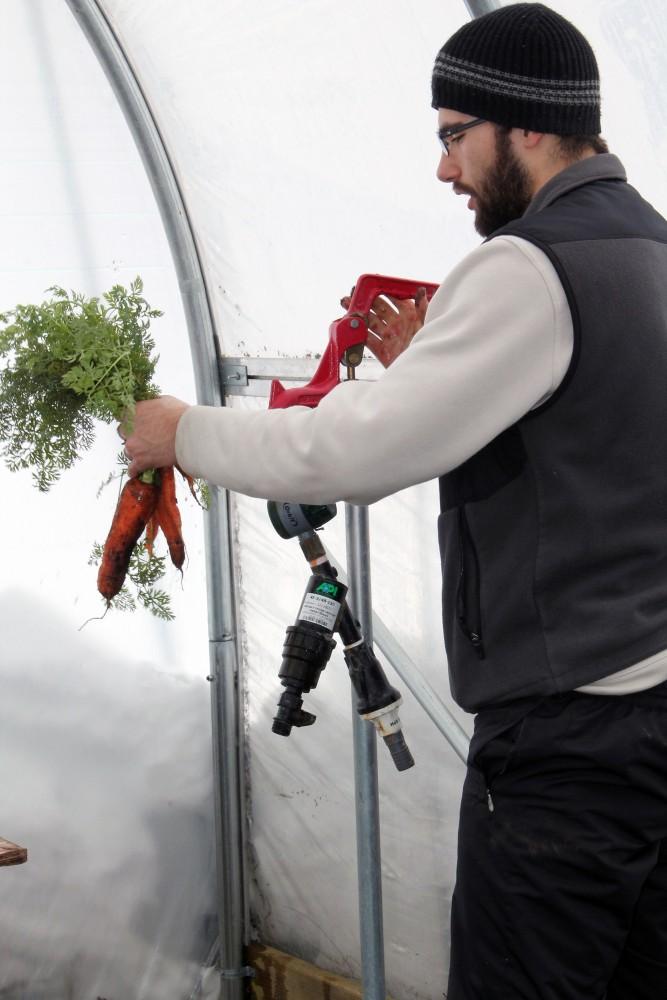GVSU Farm Club excited about new Ag bill

Feb 12, 2014
After two and half years of debate, the Farm Bill was signed by President Barack Obama on Friday at Michigan State University.
Sen. Debbie Stabenow, the chairwoman of the Senate Agriculture Committee, sponsored the proposal, which she calls a “reform bill.”
“I’m proud this farm bill is focused on the future, not the past,” Stabenow said. “We worked hard to make sure that every form of agriculture is represented.”
The Agricultural Act of 2014, commonly called the Farm Bill, has received a lot of attention for eliminating direct payments and subsidy programs that pay farmers each year whether they planted crops or not. A less touted aspect of the bill is its support for local farmers markets and food projects such as greenhouses and community gardens.
The Farm Club at Grand Valley State University is excited for the possibilities the act may bring in the future.
“West Michigan is an especially good symbol of how agriculture can stimulate economic development,” said Youseff Darwich, president of the club. “A number of farmers markets, community gardens and farm to table restaurants are demonstrating the demand of sustainable, local agriculture. It’s fitting that the Farm Bill was signed in Michigan because our state demonstrates the potential of agriculture.”
The Farm Club is an initiative of the Sustainable Agriculture Project at GVSU. During the summer and fall semesters, the group operates a farm stand selling the produce they grow. During the winter the group holds weekly meetings and volunteers at the farm on Fridays.
“It’s a good time to get into the local food movement,” Darwich said. “The demand is there and, hopefully, the Farm Bill will help enable more young people the opportunity to fill it.”
Right now, the average age of a Michigan farmer is 56 and many will soon be retiring. This creates a large demand in the agriculture industry for young people, Darwich said. However, the industry doesn’t make it easy on the next generation of farmers.
“As it stands now, starting up a farm is nearly impossible for young people because of access to land, insecure land tenure and start up costs,” Darwich said.
Those who can get into the business are joining one of Michigan’s largest industries.
Since 2009, Michigan has generated about $91 billion in economic activity per year, according to the Department of Agriculture and Rural Development.
“Agriculture is a vital topic for our legislators,” Darwich said. “Farms lay the foundation that supports the American people. Aside from generating revenue, it is how we obtain food, one of the fundamental resources needed for human life. Agricultural practices also effect the quality of our water, the other fundamental resource needed for life.”

























